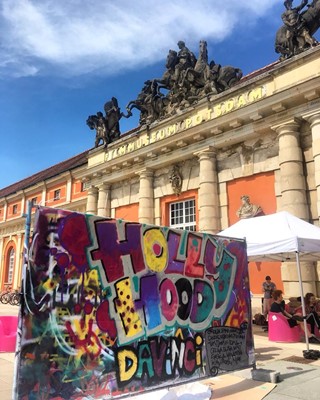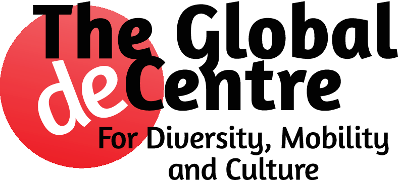
Reflections on factory, faculty and fun
By Ali Konyali:
It was not until I started my PhD trajectory at the Erasmus University Rotterdam that I realized how unreliable research findings can really be. Trying to be empathetic coupled with reflections of my own position, my research results were mostly based on an analysis of data collected through respondents who were categorized as a group. I did my best to explain my findings in scientific publications.The insecurity I experienced throughout my trajectory had to be excluded in order to keep my findings trustworthy and reliable. The same is true for the unhealthy way of living that I developed as a habit throughout the years. I mentioned following a therapy only if I felt comfortable enough with strangers during conference dinners.
Yes, my research is based on qualified assumptions, the variables of my research depend on subjective conceptualizations and I am sure that they are shaped by my insecurities. Because, not only do I think that I am not good enough, for a long time I did not dare to question the competence of others either. And yes, I feel increasingly uncomfortable being one of the few migration scholars with a migration background at conferences devoted to migration studies. My frustration is fuelled by own working-class-migrant background narrative. I know it by heart now: The hope to improve the life chances of future generations was crucial for the motivation of my grandparents to migrate to Germany in the late 1960s… It became the prologue of my PhD dissertation.
If I want to tell people who I am I often tell them about my grandfather and how he was “checked like a horse” (his own words) upon his arrival as a guest worker. If I get even more comfortable, I tell them how they are tied to an image in my head: My grandparents were already retired and living in Turkey for the most part of the year. During one of their occasional doctoral visits in Germany, we were having dinner when my father was once again accused of failure. Not understanding it clearly, he had signed a letter that could have meant losing his job guarantees he had earned for years at the factory he was working. I still see clearly how my grandparents were talking at him and how he puts his head on the table in despair. Even though the issue was resolved in the end, I get angry even thinking about his helplessness.
I did not become a lawyer, neither did I become a teacher. The exact content of my job is difficult for me to explain to my parents. Whereas what I do is reading, thinking and writing. It is a joke compared to what my parents and grandparents had and have to endure. But at times it is driving me crazy (literally!) how people objectify their research projects. How important they seem and how well they know to keep it at safe distance from themselves. I immediately project a middle-class background to every white fellow academic I encounter. Trying to live an open-minded life, I realize how obsessed I have become with people’s backgrounds. I am consciously looking for common markers like “I am also the first one to study in my family” to feel at ease.
Acting out
When I started writing this essay it was difficult for me to get out of my role as an academic. I asked for an extension of the original deadline because I wanted to tell you something that would make you feel what I want to say. I started referring back to papers on research methodology and the philosophy of science that I had written as a student. I wanted to explain how I think that we expect too much from our research.How this can be seen in concluding paragraphs that call for further research. Paragraphs that often taste like the statement of broken promises.
I wanted to tell you about situations at research workshops and conferences. Situations in which I still had my poorly ironed shirt in my pants. Situations for which I was slightly overdressed with my black corduroy jacket. I remember the PhD Methods Summer School in London where I went to refresh my methodological knowledge but instead ended up worrying because other PhDs appeared much more confident about what they set out to do.To this day, conferences are still the place where I face my relentless inferiority complex. I had to learn to face it. And it is a fearless piece of work.
I am more confident now. Maybe my doctoral degree actually did something to me. But I think it was the way and both internal and external developments along the way that changed me. Casually and at times painfully. At the preliminary end of this way, very recently, I started incorporating my rap songs into academic presentations. But it was already beforehand that I realized how much displaying research findings in front of an audience resemble a stage performance. And when I am on a stage, I am not afraid. My heart is pounding, I have a tunnel vision and I become even clumsier than I usually am. But I am not afraid. I can feel my eyes glowing.
Welcome to HollyHood
In May 2018, a month after I had successfully defended my PhD dissertation, I was fortunate enough to be involved in theHollyHood School Academy for Hip Hop and Social Justice. I became part of the team and contributed as a speaker and as an artist giving rap workshops. HollyHood aims to create spaces for encounters in order to trigger a critical self-reflection on important socio-political topics of our time. In our first edition, we invited secondary school classes from Kreuzberg, Berlin and the neighbouring city of Potsdam in order to integrate classical topics of an emancipatory educational practice into the multi-layered narratives on Hip Hop culture that is very popular among learners.
With HollyHood we want to illustrate that the cultural practices of Hip Hop are well suited to break up traditional teaching and learning practices.This allowsfor unconventional and emotionalizing approaches to areas that are otherwise dealt with in rather boring jargon that is difficult to understand for adolescents and non-academics. In addition, we mesh the thought-provoking content with small artistic performances and music videos. We understand schoolchildren whom we refer to as learners, primarily as resources rather than passive receivers of knowledge and we build on the concept of culturally relevant and sustaining pedagogy1.
So far, we have three interactive multimedia presentations prepared that make obvious how we move from the particular origins to the global spread of Hip Hop Culture:
- Born in the Bronx: The origins of Hip Hop in the USA
- Foreign in their own country: Rap and migration history in Germany
- „We’ve had enough!“Hip Hop as a protest movement in Senegal
We would like to carefully extend this content as we are currently designing Hip Hop-based teaching formats on other issues. Depending on the requirements of the curriculum and the educational needs, the representatives of the participating schools can express their wishes for thematic inputs.
Hip Hop values such as Peace, Love, Unity and Having Fun, Knowledge of Self and Community, as well as the educational principle of Each One Teach One principle are ideal for educative purposes on social (in-)equality. The practical art workshops are designed to encourage learners to develop their skills and bravely face a task that they can solve and master together with others. Following the thematic input, we gave learners the opportunity to incorporate the content in practice. From non-verbal practices in breaking, beat-making or graffiti, to lyrically rhythmic forms of expression in rap, everyone was able to choose a form of mediation according to their own strengths, interests and experiences.
Our focus is on collaborative learning, which should be fun above all else. The creative work resolves fears and can reduce prejudices by allowing the identification of common goals. We want to accommodate the heterogeneity of learners with versatile, artistic practices and forms of mediation. A great strength of our team is that adiverse array of cultural and artistic skills come together with a great deal of experience in youth work. In this way, we combine competences and transfer knowledge to a level of innovative youth pedagogy in an entertaining and accessible form. To facilitate this, we draw on a team which unites different social backgrounds, gender, sexual orientations as well as people with and without migration backgrounds.
Glowing Eyes
Any knowledge production and transfer, is based on subjective positionsand inherent contingencies. Therefore, any educational approach should acknowledge and take into account the political antagonisms of social life. You are always taking a stance. Given the dominant neoliberal framework, any abstention is a de facto confirmation of the status quo. From the moment I started working on the HollyHood School Academy, I felt that I could rely on a different sort of reliability that went beyond the mere factual accuracy of what we were trying to convey. Our menu consisted of nothing less than food for thought on social injustices on a global scale, albeit packaged in tangible portions.
However, I felt secure enough to convey clear statements. Because I felt that the young people in front of me knew what I was talking about. References to examples from the Hip Hop culture made obvious that specific forms of expressions themselves can represent reactionsto societal conditions of exclusion. They can be manifested in dance routines, paintings on the wall, musical compositions and lyrics. And yes, in HollyHood insights from gangster-rappers are considered as noteworthy as academic conceptions on the redistribution of wealth.
Education is a battlefield. And every Hip Hopper knows that giving up without a fight is not an option. Hip Hop has been historically a cultural response in contexts of severe exclusion and deprivation, even if mainstream rap artists often seem to affirm the ideals of material and individualized success through self-optimization. Focusing solely on a few hit singles and individual artists as representatives of a globalculture, obstructs entailed perspectives of collective organization and action that point the way to social alternatives. Furthermore, even multi-platinum gangster-rappers take a “ghetto-centric”position, whereby they offer a strong counterpoint to mainstream middle-class habitus.
When I came home from the first day of HollyHoodI felt a novel type of exhaustion. My brain was clouded with ideas and inspiration I drew from the day and I kept on thinking about moments worth remembering. Moments in which sceptical faces turned into surprised admiration. Moments in which the timid laughter of a young woman was substituted with a self-confident gaze. Moments in which teachers were not too proud to ask us how we managed to tame the troublemakers. Moments in which many eyes started glowing. I remember telling my wife that if this was work then I do not want to do anything less for a living anymore. I was at ease.
Ali Konyali (a.konyali@gmx.com)
1 Ladson-Billings, G. (1995). Toward a theory of culturally relevant pedagogy. American educational research journal, 32(3), 465-491; Ladson-Billings, G. (2014). Culturally relevant pedagogy 2.0: aka the remix. Harvard Educational Review, 84(1), 74-84.

